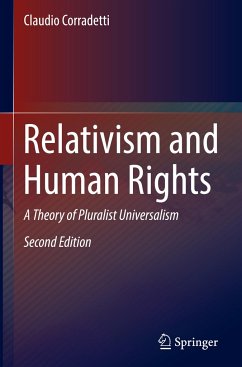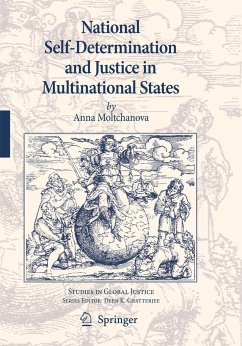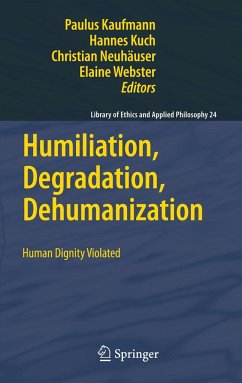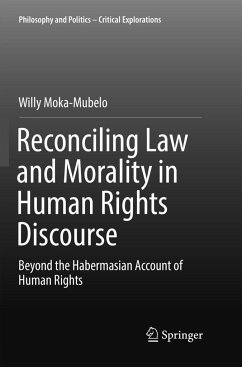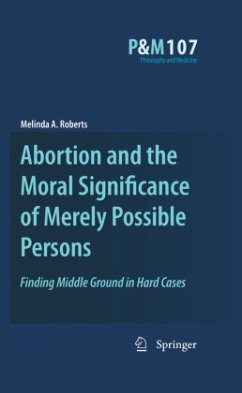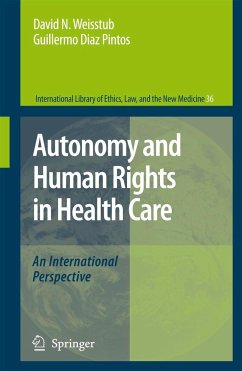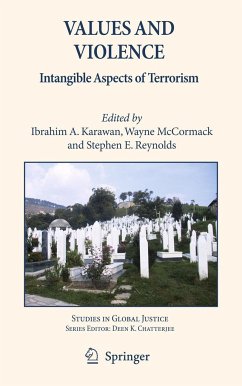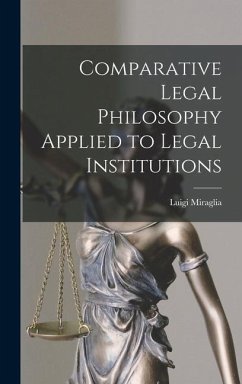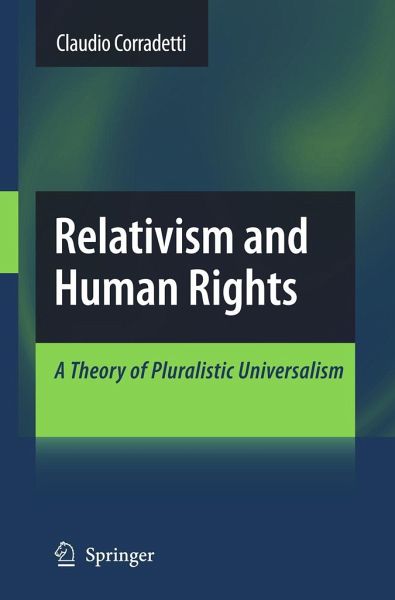
Relativism and Human Rights
A Theory of Pluralistic Universalism
Versandkostenfrei!
Versandfertig in 6-10 Tagen
91,99 €
inkl. MwSt.
Weitere Ausgaben:

PAYBACK Punkte
46 °P sammeln!
This book advances a post-metaphysical model for testing the validity of human rights principles. It takes into account some of the most recent researches in the field of cognitive linguistics and ethics in order to ground a deliberative model based upon the Kantian reflective judgment. Even if specifically suited for academics and research scholars, it can profitably be adopted as a supplementary textbook in masters and doctoral programmes. As a unique contemporary contribution to the understanding of the conceptual status of human rights principles, this work represents an invaluable instrument also for the activities conducted at research centres and think-tanks. Indeed the abstract premises of the book are oriented to a more and more concrete underpinning of the contemporary human rights challenges as those faced by public officials involved in human rights project cooperation.
When he nished writing, he raised his eyes and looked at me. From that day I have thought about Doktor Pannwitz many times and in many ways. I have asked myself how he really functioned as a man; how he lled his time, outside of the Polymerization and the Indo- Germanic conscience; above all when I was once more a free man, I wanted to meet him again, not from a spirit of revenge, but merely from a personal curiosity about the human soul. Because that look was not one between two men; and if I had known how completely to explain the nature of that look, which came as if across the glass window of an aquarium between two beings who live in different worlds, I would also have explained the essence of the great insanity of the third Germany. PRIMO LEVI [If this is a man, pp. 111-112, in, If this is a man and The truce, trans. S. Woolf, Abacus, London, 1987] If all propositions, even the contingent ones, are resolved into identical propositions, are they not all necessary? My answer is: certainly not. For even if it is certain that what is more perfect is what will exist, the less perfect is nevertheless still possible. In propositions of fact, existence is involved. LEIBNIZ [Samtlic ¨ he schriften und briefe vol VI pt 4 Deutsche Akademie der Wissenschaften, 1449A VI 4] We live in a rule-constrained world.





